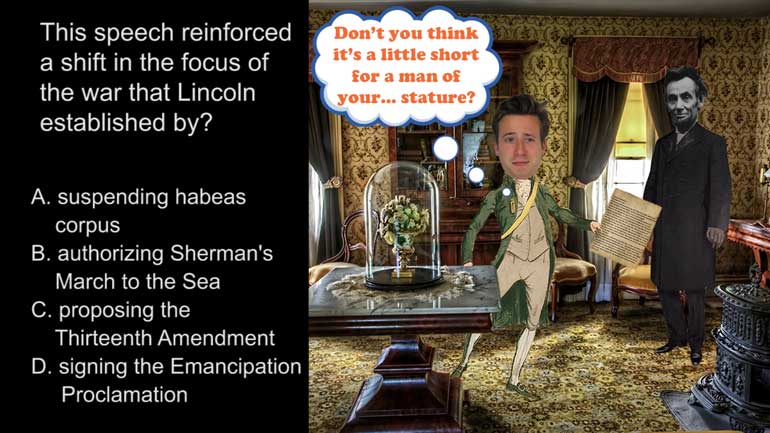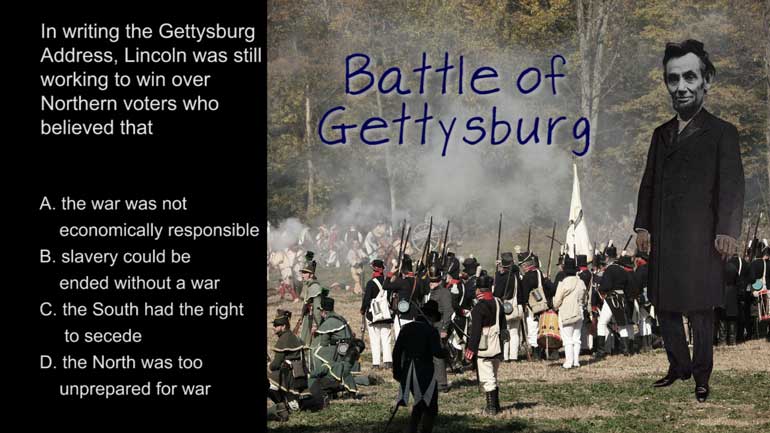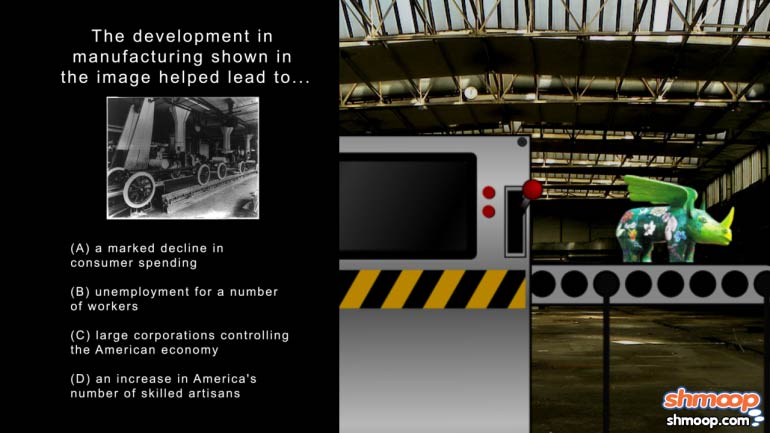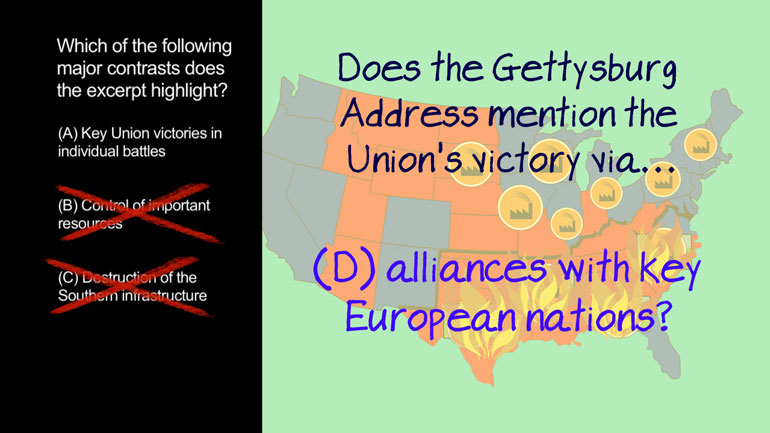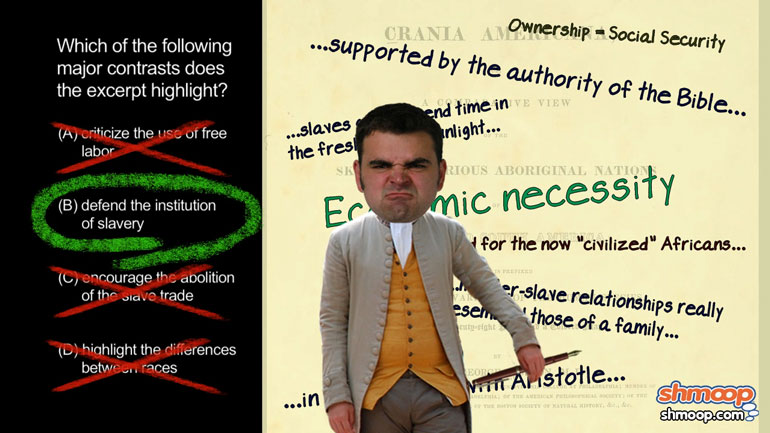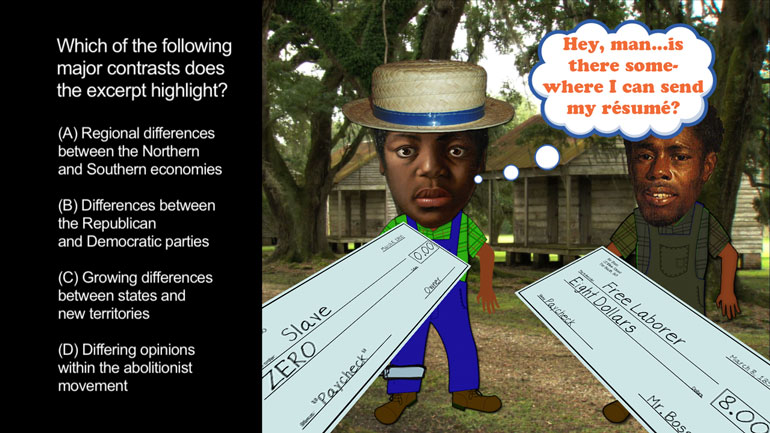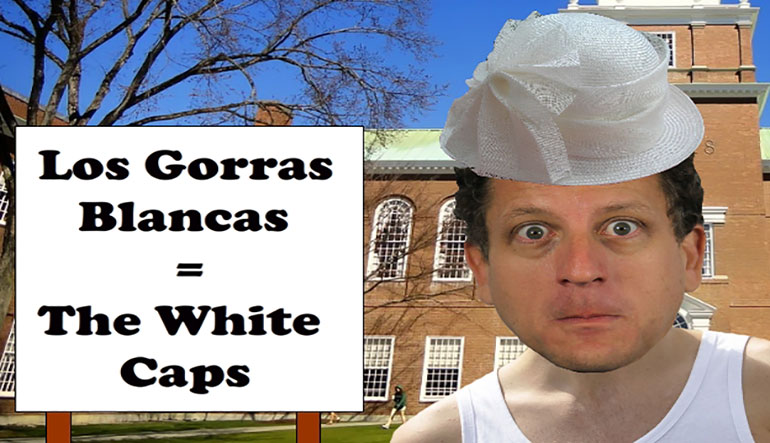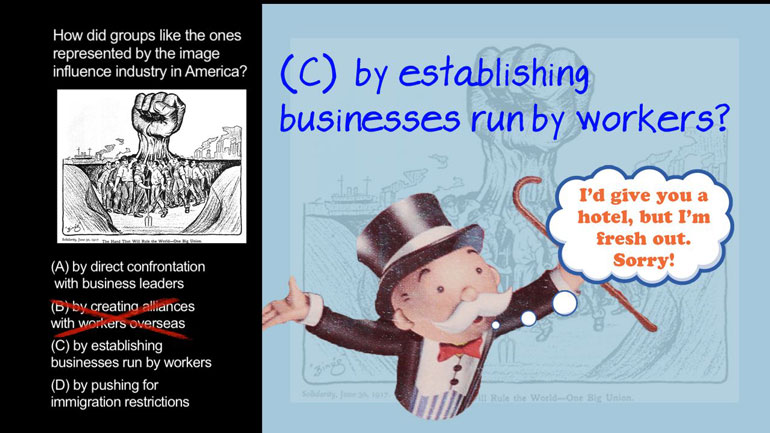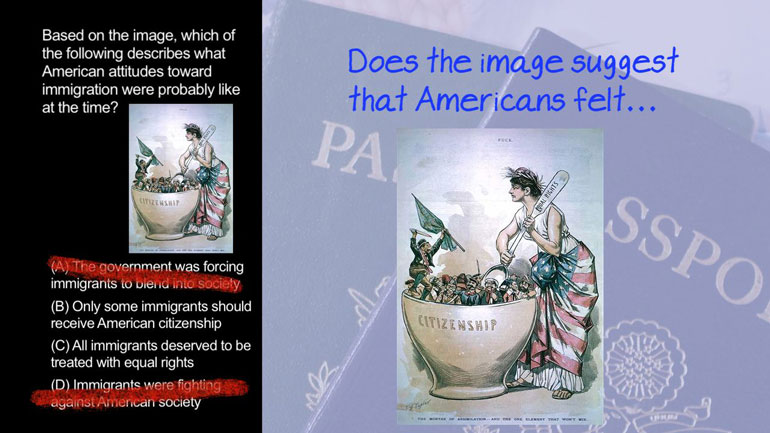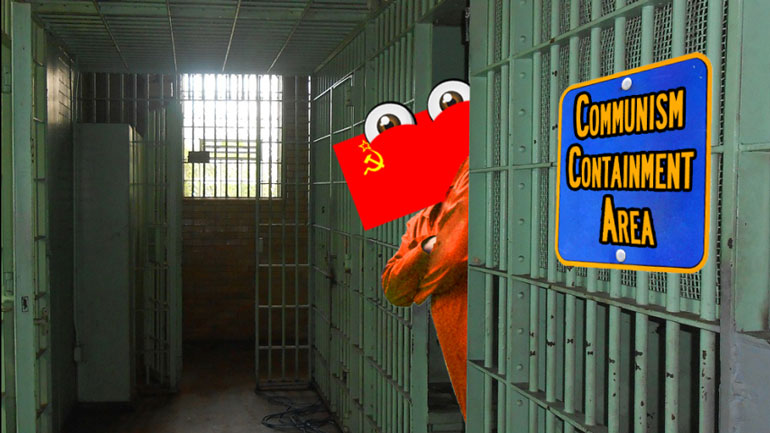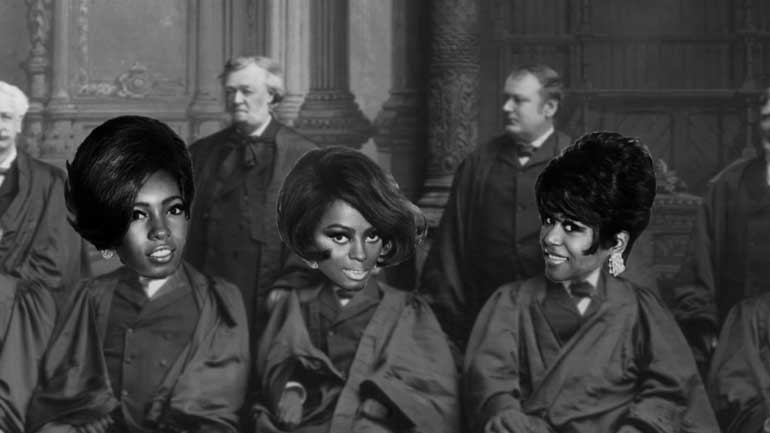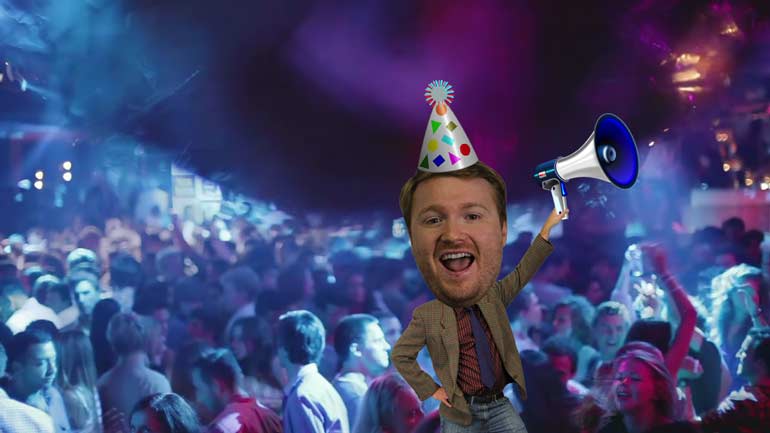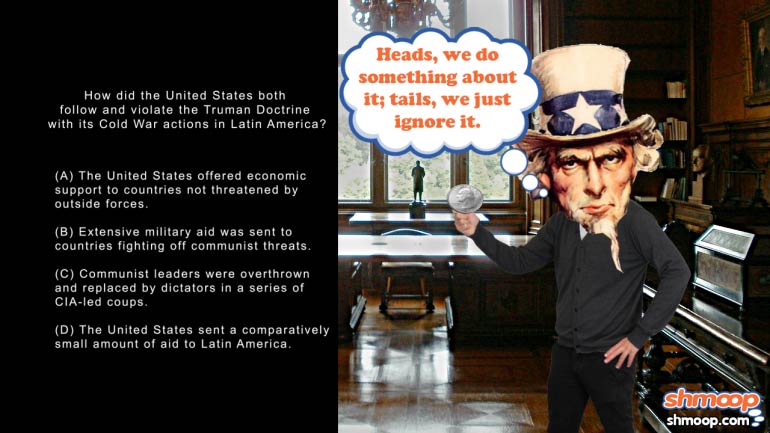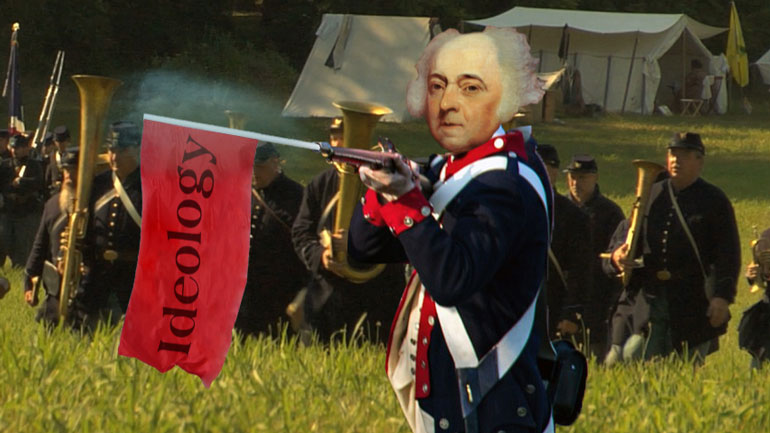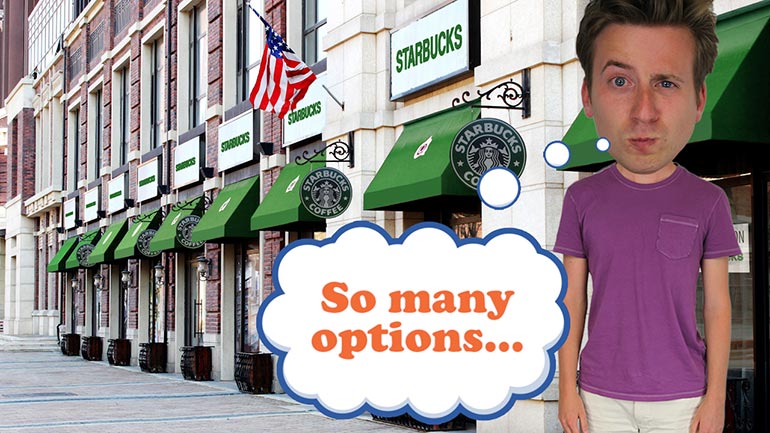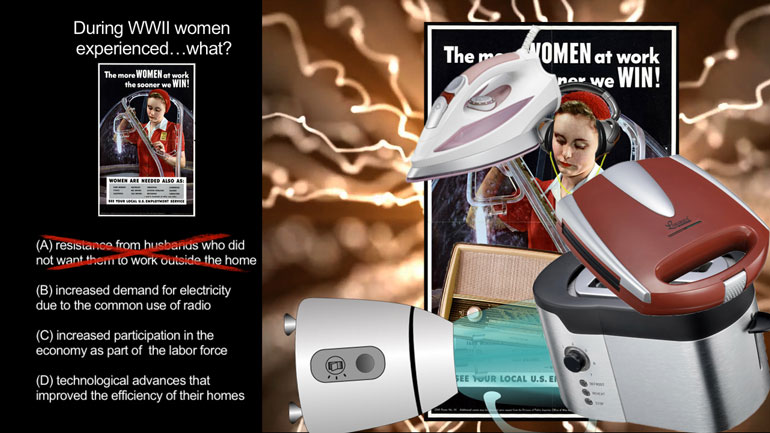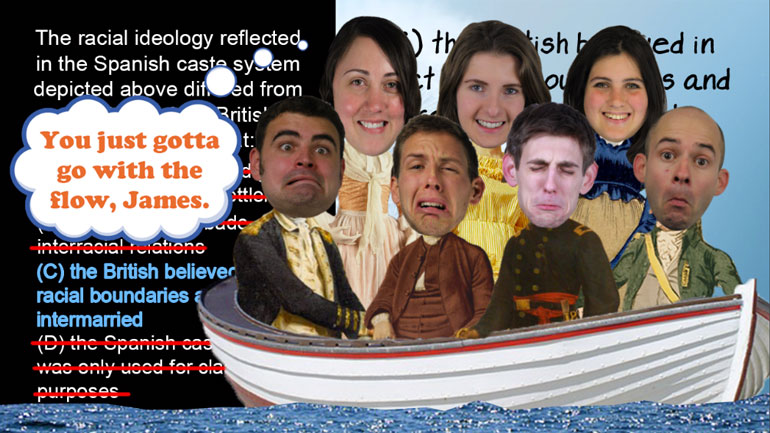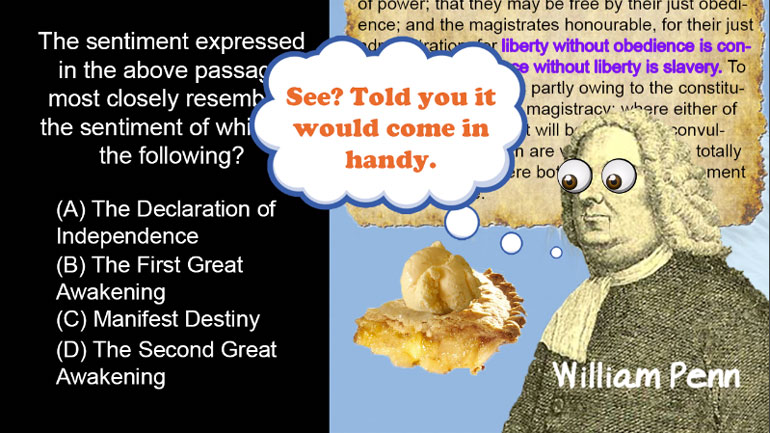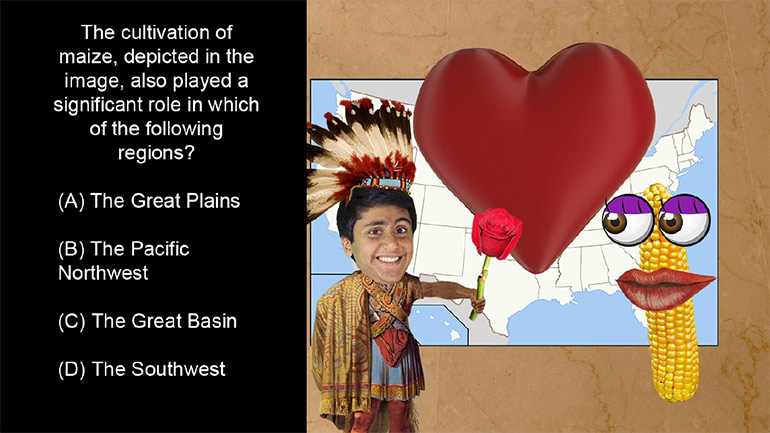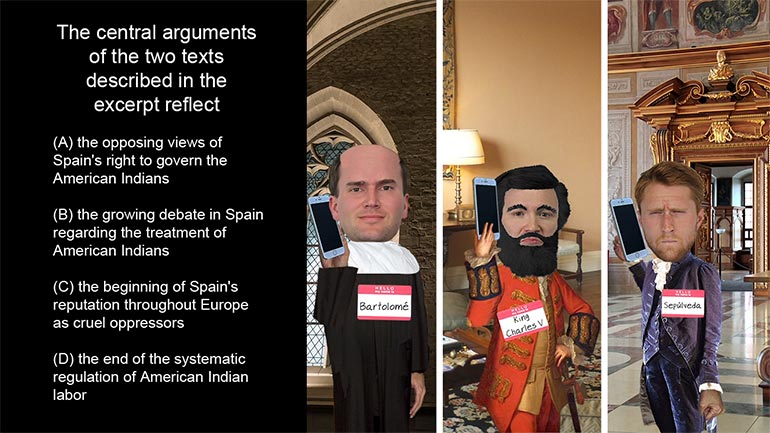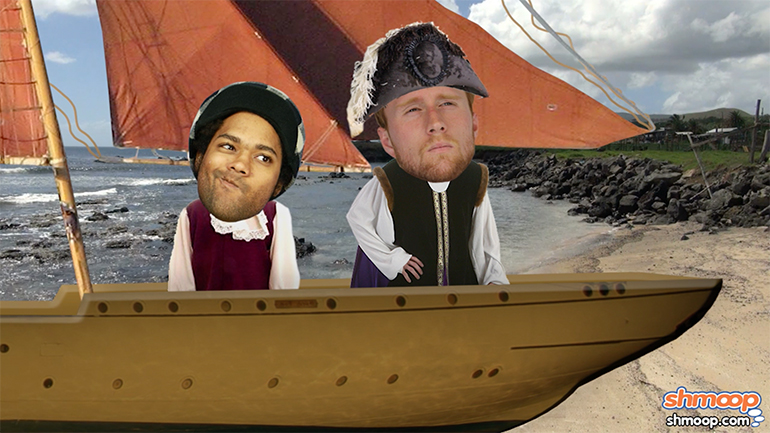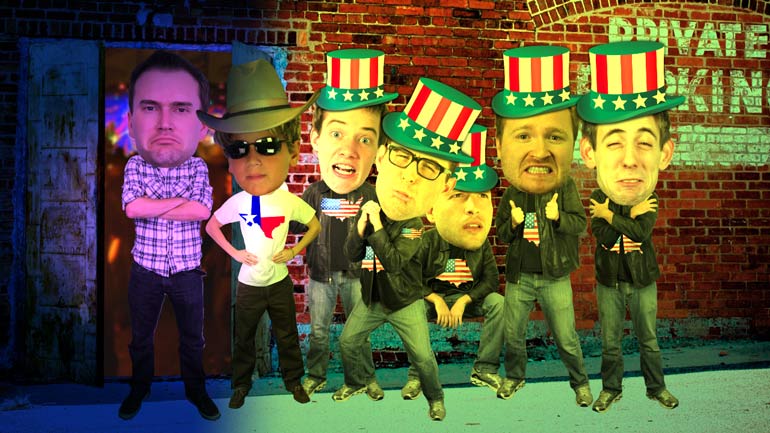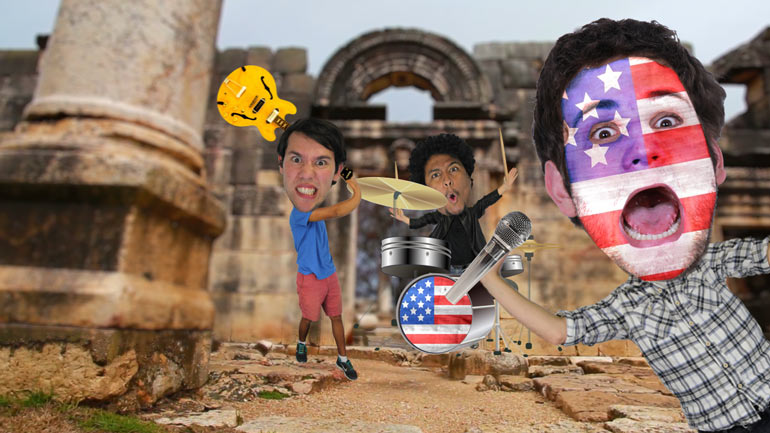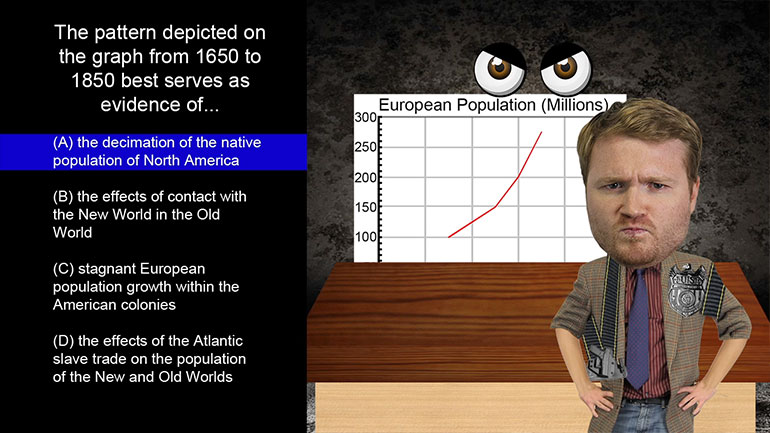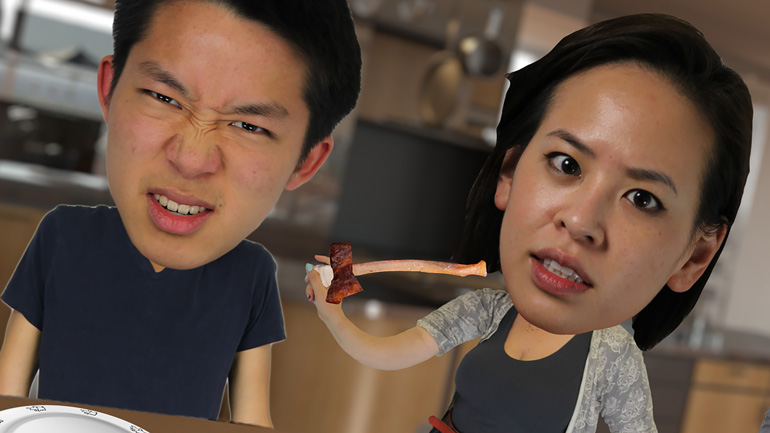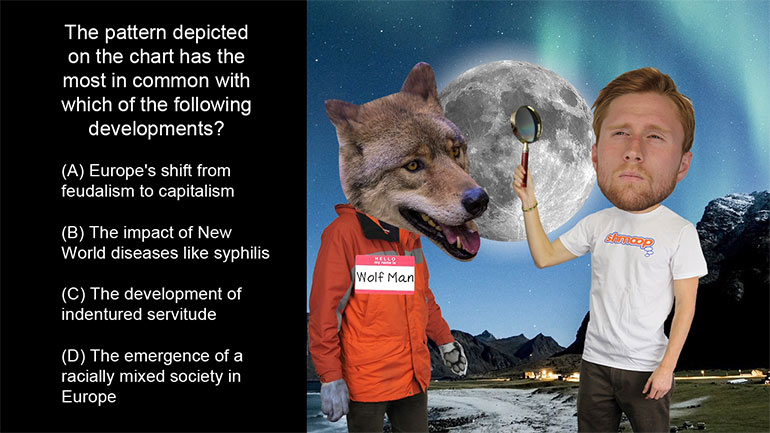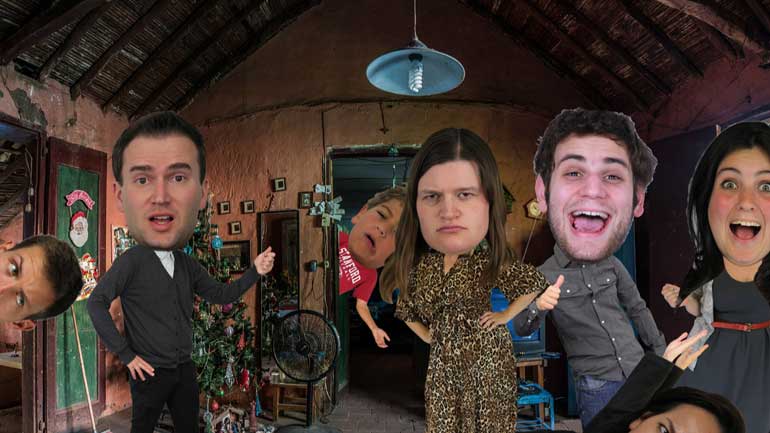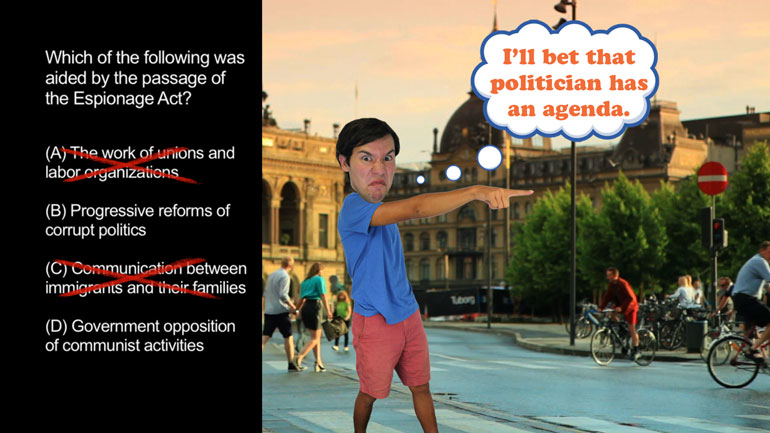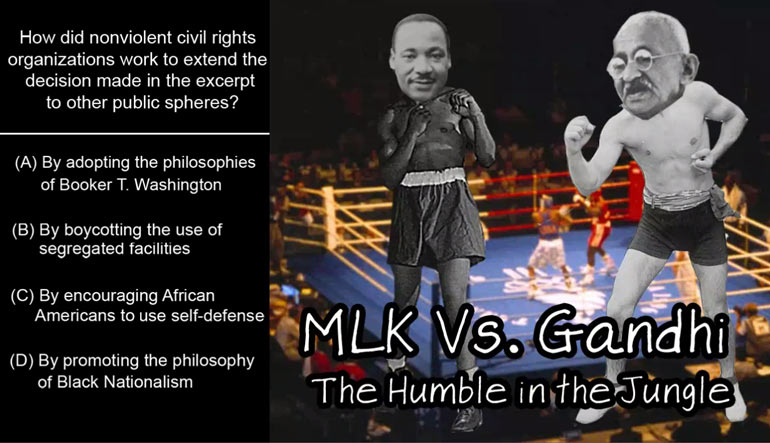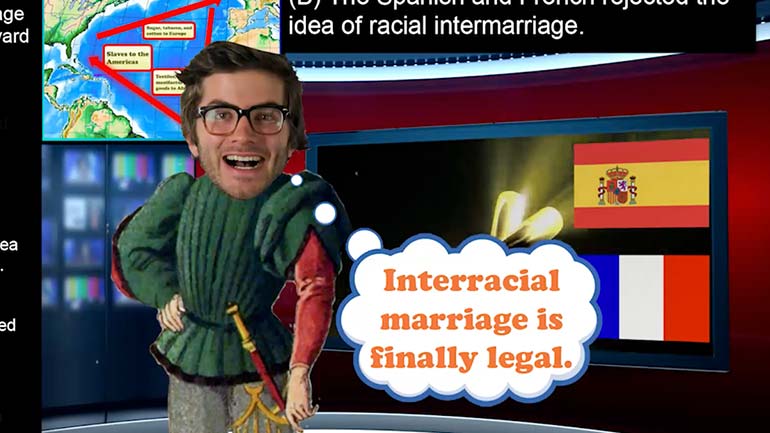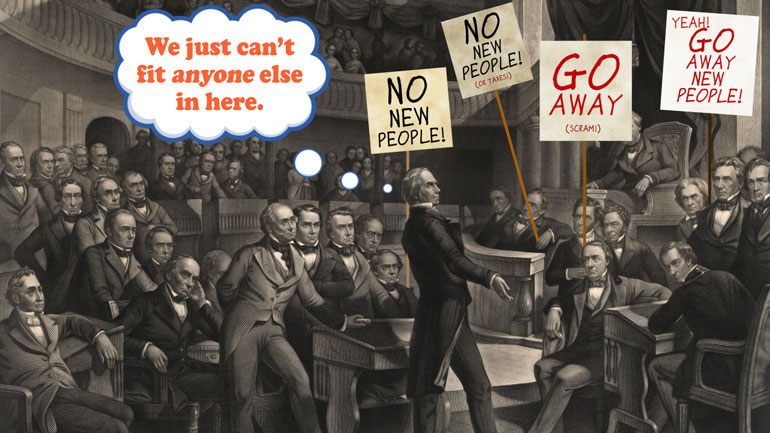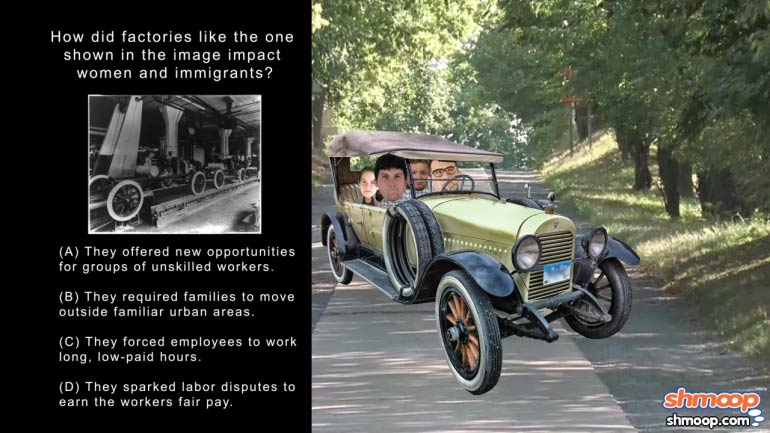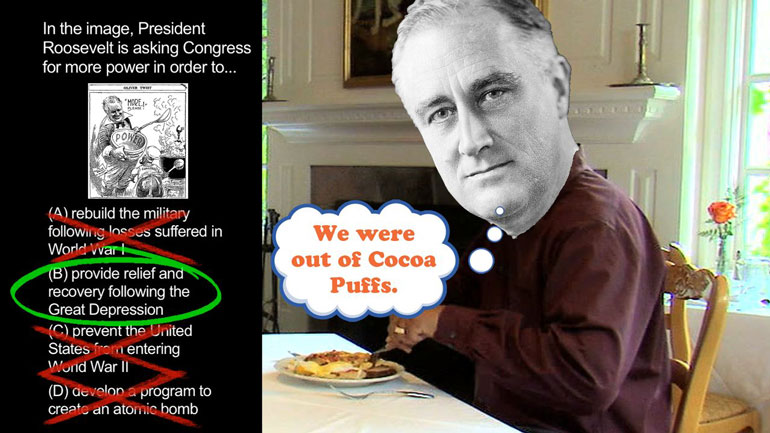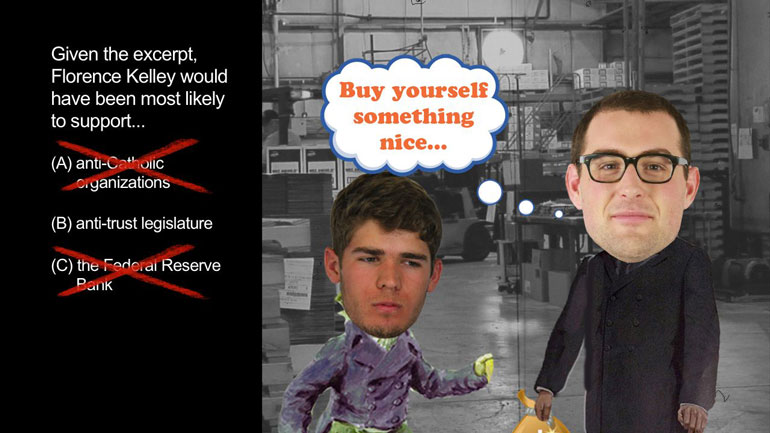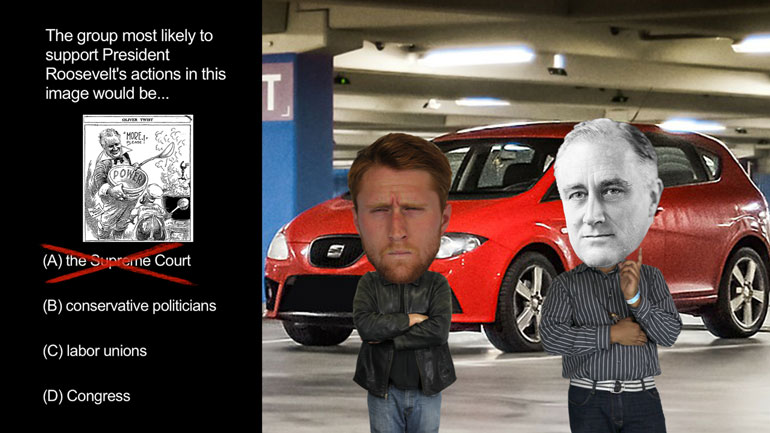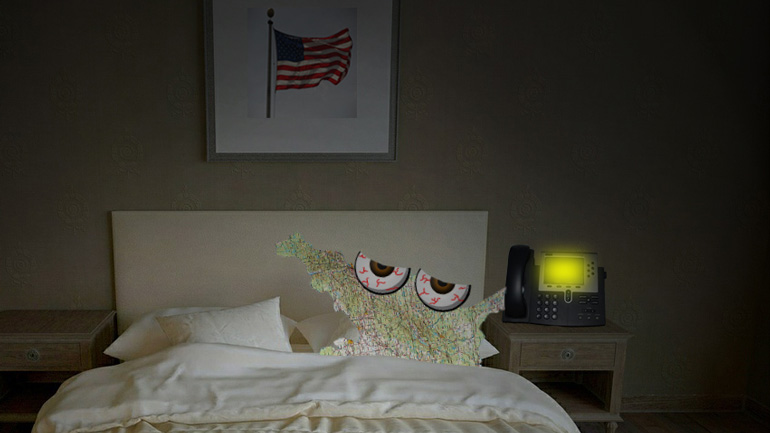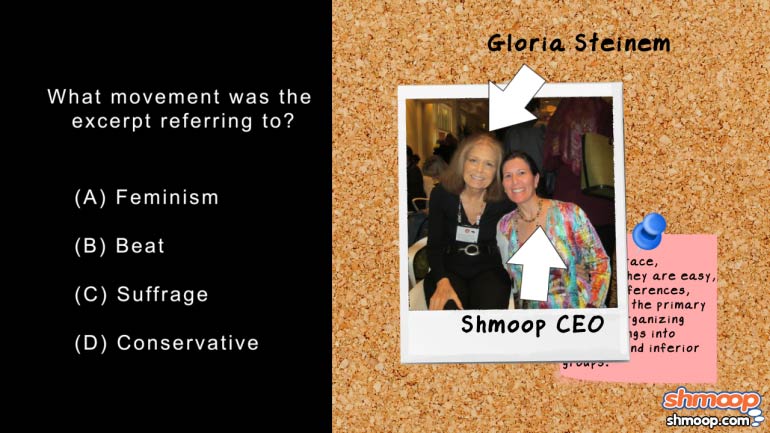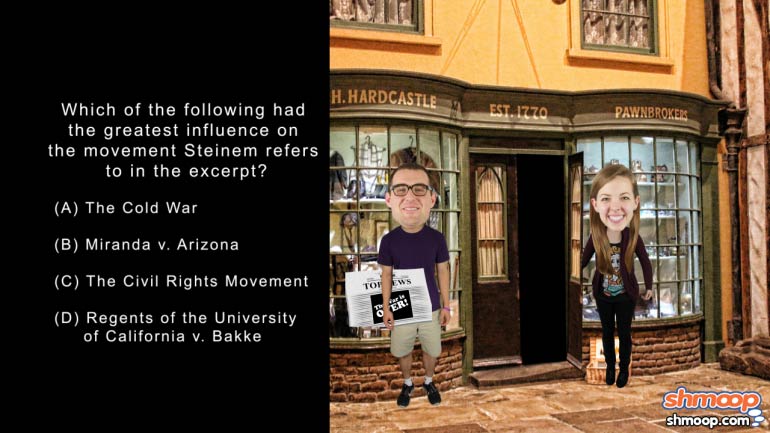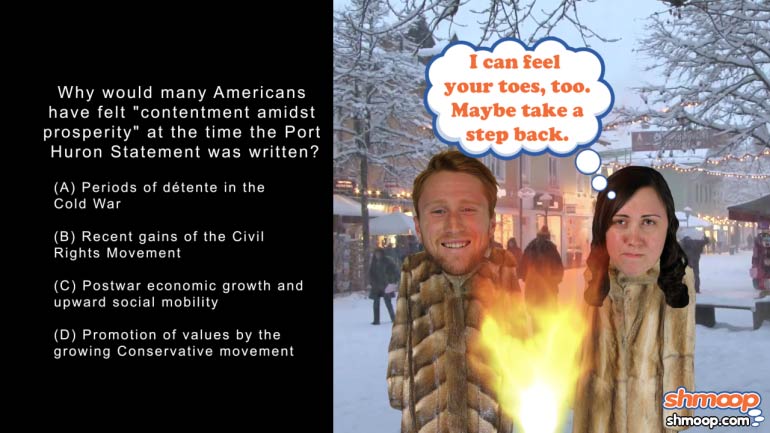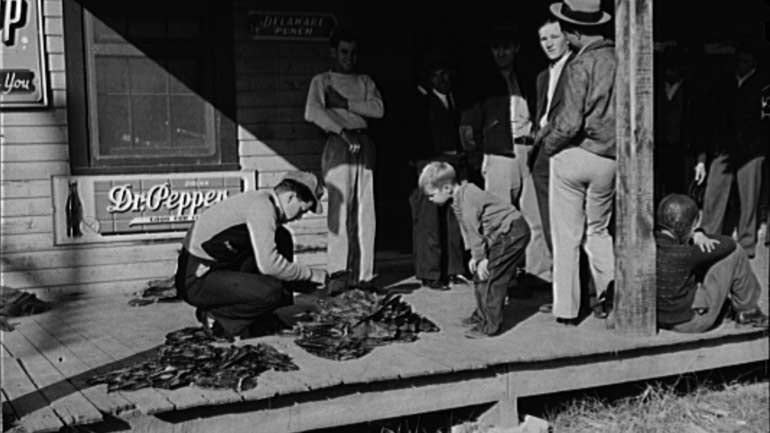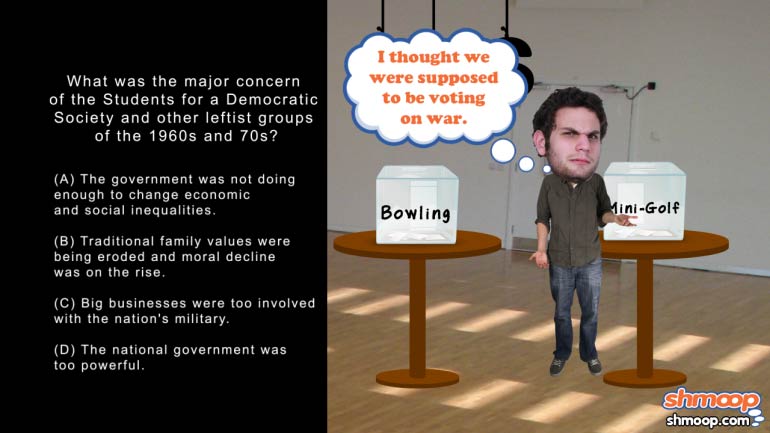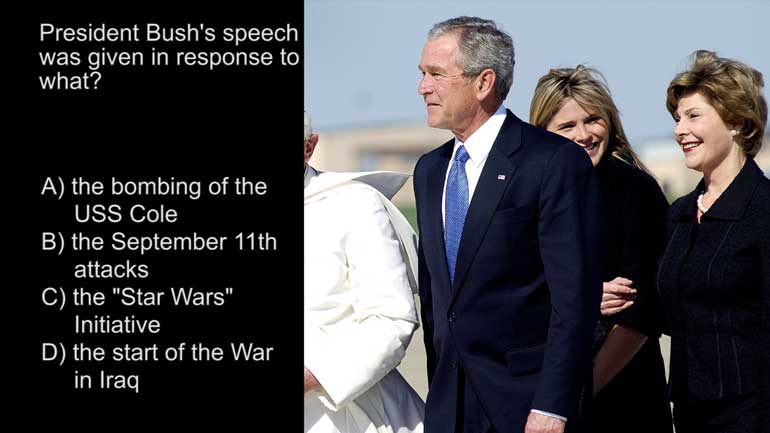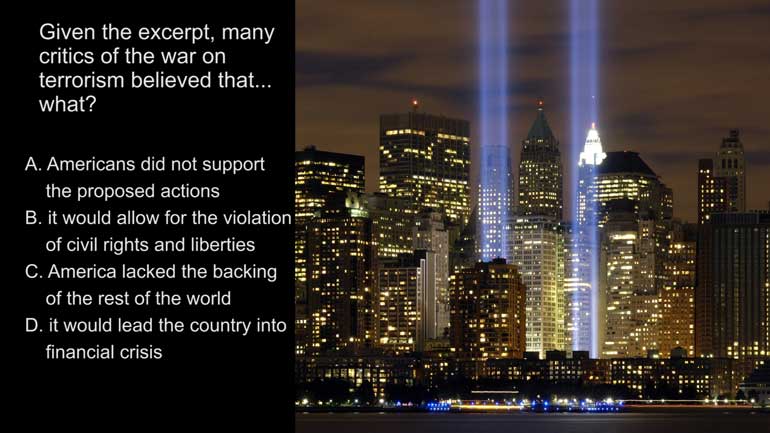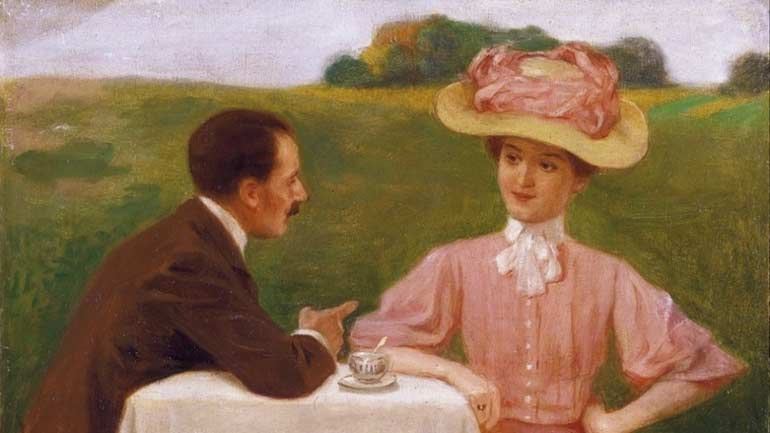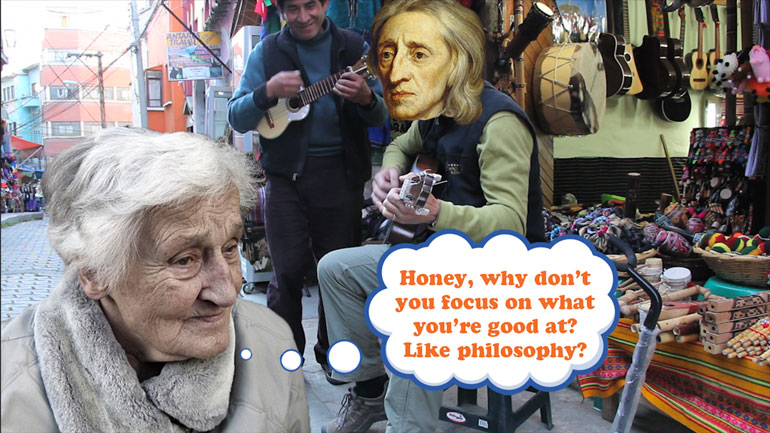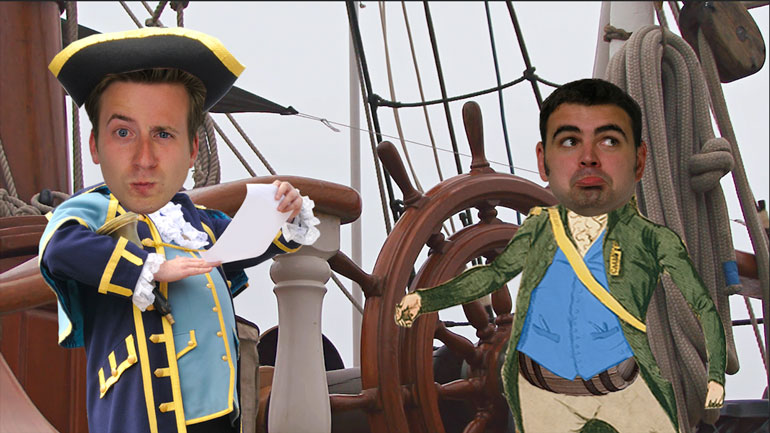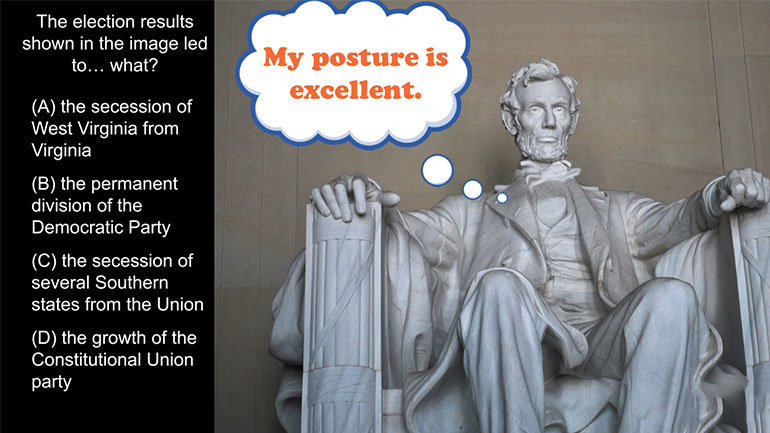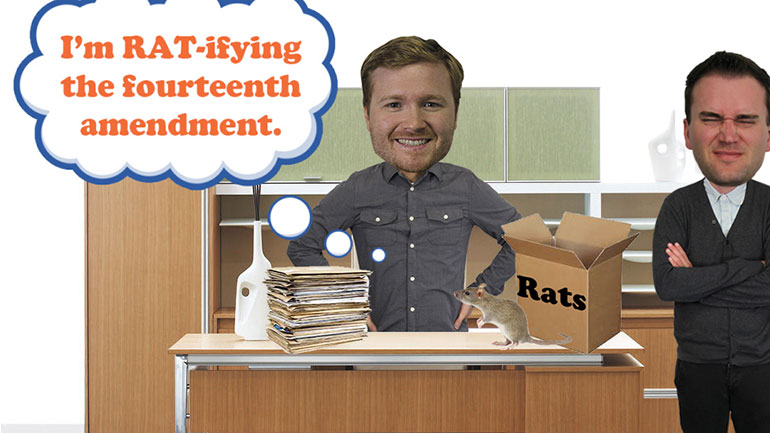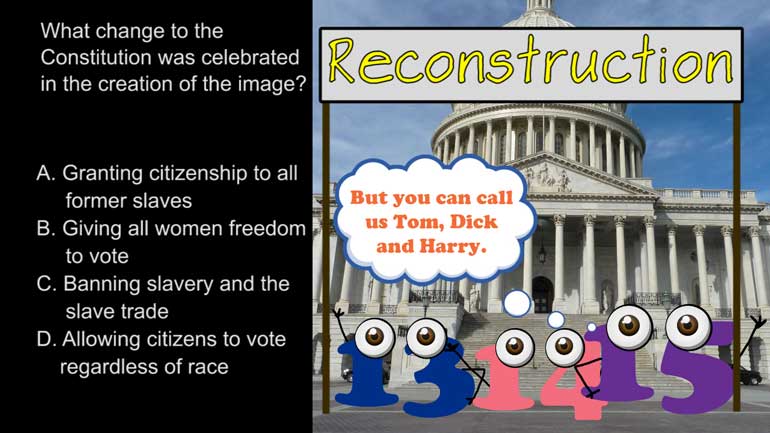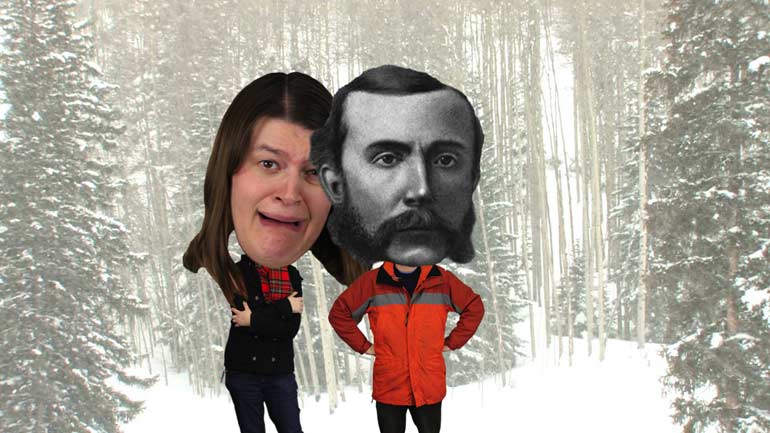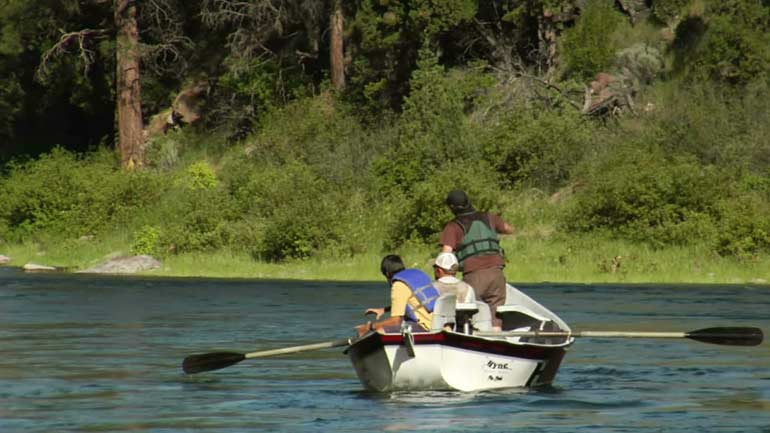ShmoopTube
Where Monty Python meets your 10th grade teacher.
Search Thousands of Shmoop Videos
AP U.S. History Videos 294 videos
AP U.S. History Exam 2.45. The journey shown on the map was an example of...what?
AP U.S. History Exam 2.26. This speech reinforced a shift in the focus of the war that Lincoln established by...what?
What did the Spanish messengers bring with them to North America? Hint: you probably wouldn't be thrilled to get this for your next birthday.
AP U.S. History Exam 2.26 362 Views
Share It!
Description:
AP U.S. History Exam 2.26. This speech reinforced a shift in the focus of the war that Lincoln established by...what?
Transcript
- 00:00
[ musical flourish ]
- 00:03
And here's your Shmoop du jour, brought to you by habeas corpus,
- 00:07
or "have a good day" in zombie speak.
- 00:10
[ zombie voice ] Brains, brains.
- 00:12
[ normal voice ] Yeah. That also means "have a good day."
Full Transcript
- 00:14
First up the excerpt. [ zombie voice ] Brains. Brains?
- 00:17
[ zombie voice ] Brains, brains.
- 00:20
[ normal voice ] All right. No, Lincoln was not a zombie, people. Come on.
- 00:23
And now the question:
- 00:24
This speech reinforced a shift in the focus
- 00:27
of the war that Lincoln established by... what?
- 00:31
Hmm. And here are your potential answers.
- 00:34
[ mumbles ]
- 00:38
Okay, important concepts, people. Pay attention.
- 00:42
When Lincoln delivered the Gettysburg Address, citizens of
- 00:44
the nation had been at one another's throats
- 00:46
for two and a half years.
- 00:48
Lincoln hoped he could end the war in, well,
- 00:51
272 words.
- 00:52
Did the Gettysburg Address reinforce a shift in the war's focus
- 00:55
that Lincoln had established by A - suspending habeas corpus?
- 01:00
All right, well, at the beginning of the Civil War, Lincoln argued
- 01:03
that the purpose of fighting was to preserve the Union,
- 01:06
even going so far as to suspend habeas corpus
- 01:09
in an attempt to hold things together.
- 01:11
Remember, it's a legal procedure that prevents the government
- 01:14
from holding you without just cause.
- 01:16
So A is out.
- 01:17
Anyway, was the Gettysburg Address used to reinforce
- 01:20
Lincoln's change in tactics reflected by B -
- 01:23
authorizing Sherman's March to the Sea?
- 01:26
Well, the Gettysburg Address took place in November 1863.
- 01:29
And Sherman's March to the Sea, however,
- 01:31
occurred in November 1864,
- 01:34
so we're a little early for that.
- 01:35
And remember, that March to the Sea was to punish the South for
- 01:38
believing their beliefs in slavery and a bunch of other good things.
- 01:41
But, anyway, B's not the right answer here.
- 01:43
Did Lincoln use the Gettysburg Address to reinforce his
- 01:45
decision to C - propose the Thirteenth Amendment?
- 01:48
Lucky 13. Well, actually, the Thirteenth Amendment
- 01:51
wasn't proposed until a few weeks after Lincoln's speech,
- 01:54
so the Gettysburg Address was a catalyst, not a reinforcement,
- 01:58
for that momentous step.
- 02:00
So that means that the Gettysburg Address reinforced a shift
- 02:02
in Lincoln's focus demonstrated by D -
- 02:05
signing the Emancipation Proclamation. Freeing slaves.
- 02:08
When Lincoln signed the Emancipation Proclamation
- 02:10
on January 1, 1863,
- 02:13
he made a sweeping move to free all slaves in areas
- 02:16
outside of Union control,
- 02:17
meaning basically the South and everything to the west.
- 02:20
This shifted focus of the War toward the goal of ending slavery,
- 02:23
reinforcing that the nation
- 02:26
shall have a new birth of freedom. So D is the right answer.
- 02:29
With the Emancipation Proclamation, Lincoln took his
- 02:32
passion for freedom and really shouted it out from the rooftop.
- 02:36
[ crowd gasps ]
Related Videos
Ever heard of a "living document"? They eat and breathe just like the rest of us! They even walk around on their own two legs. Okay, fine—maybe t...
If the Puritans had gotten their way, religion would play a much larger role in lawmaking these days. Want to know more? Watch the video for all th...
What happened between the creation of the Articles of Confederation and the ratification of the current U.S. Constitution? This video analyzes the...
The Modernists thought the world had a lot of problems, and they were intent on fixing them—or at least talking about fixing them. Unfortunately,...
This video explains Federalism and the quest for a fair balance between state and national power. It covers the progression and compromises of Fede...

